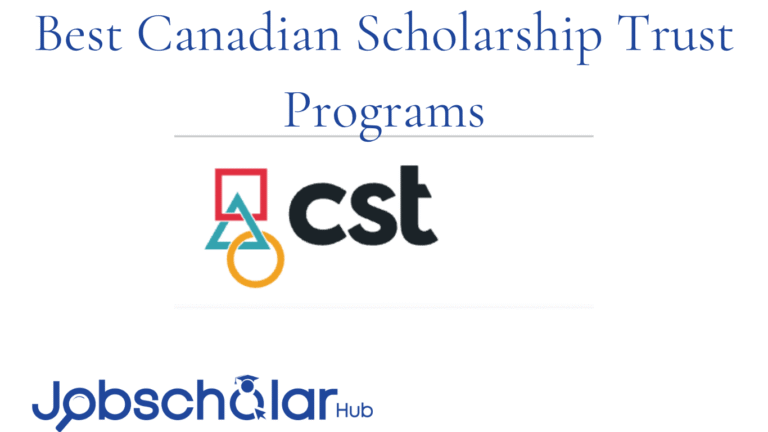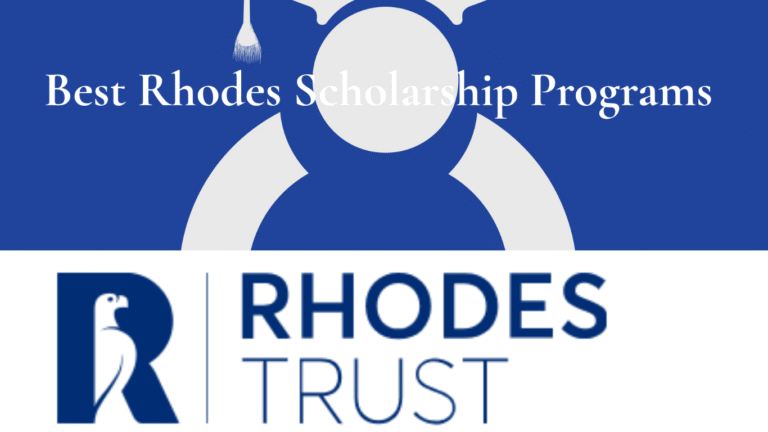Lets see the clearer picture, you’ve worked hard on your scholarship, and now you’ve landed an interview. Exciting right? But let’s be sincere it’s also never wracking. What do they want to hear? How do you stand out? Don’t worry, I’m with you on this. Let’s dive into the art of acing your scholarship interview with practical tips, benefits, and answers to those your tough questions. Are you ready? Lets delve into it.
Table of contents
- Why is the Scholarship Interview Important?
- Step 1: Understand basics
- Step 2 : Research the Scholarship
- Step 3 : Reflect on Your Story
- Step 4: Practice Common Questions
- Step 5: Perfect Your Body Language
- Step 6: Dress the Part
- Step 7: Prepare Questions for Them
- Benefits of Mastering the Scholarship Interview
Why is the Scholarship Interview Important?
Lets get it clearly, but why talk about this matters so much. You need to understand that interviews is not just about grades or accomplishments: It’s about you, your personality, your goals, and your potential. See it as a chance for the scholarship to get to know the person behind the paperwork. Think of it as your time to shine.
Step 1: Understand basics
Before we delve into the strategies, let’s down the basics. Let’s look at what you should expect in a scholarship interview.
Typically, the interview last about 15-30, however some might be longer. You u might be asked questions about your academic achievements, extracurricular activities, future aspirations and most times hypothetical scenarios.
You Can Also Read: Can Scholarships Be Used for Room and Board?
Now that you know what’s coming, its time to skip to good part-Preparation!
Who will interview you?
It can be interview by a panel of 2-5 people, which might includes educators, donors, or professionals related to the scholarship focus. Now that you know what’s coming, lets move to the good part, Preparation!
Step 2 : Research the Scholarship
So the truth is: Committees love candidates who “get” their mission. So what do you do.
Research the organization.
Understand its goals, history, and target audience.
Review the scholarship criteria.
Why do they offer this award? What qualities are they looking for? Connect your story.
Think about how your aspirations align with their mission. Let’s say the scholarship is for students passionate about sustainability. Highlight your efforts in environmental projects or your dream to combat climate change.
Step 3 : Reflect on Your Story
Scholarship interviews are storytelling opportunities. So your own job is to connect your experience to the scholarship goals.
Ask yourself: What’s my ”why” why do I even want this scholarship? What challenges have shaped me? Think about struggles that highlight your resilience.
You need to ask yourself: What are my career goals, and how does this scholarship fit into the picture?
Tips to Consider: Use the Star method (Situation, Task, Action, Result) make you structure your answers. For example:
- Situation: “In high school, I noticed many students lacked access to career guidance.”
- Task: “I wanted to help my peers make informed choices.”
- Action: “I organized workshops with local professionals.”
- Result: “Over 100 students attended, and many found clarity about their career paths.”
Now that you understand the STAR rules, it will be easier for you to reflect on your story.
Step 4: Practice Common Questions
I know you might have heard about the popular saying “practice makes perfect”. It’s true for interviews, too!
Below are some questions you might encounter:
‘Tell us about yourself.” Keep it concise .
When talking about yourself focus, on your academic background, extracurriculars, and future ambitions.
It can be “I’m a high school senior I’m very passionate about technology and its potential to bridge educational gaps. “My dream is to develop accessible learning platforms for underserved communities.” “
Why do I deserve this scholarship
You need to highlight your achievements and how they can align with the scholarship’s mission.
Example: “As someone who has led different community projects, I believe my leadership skills and dedication to social impact can make me a strong candidate.”
“What are your career goals?” Be specific. Link your goals to the scholarship’s focus.
Example: “I aspire to become a renewable engineer, designing sustainable solutions to address global energy challenges.” ” Tell them about the challenges you faced and how you overcame it”
Use the STAR method here.
Step 5: Perfect Your Body Language
Did you know non-verbal cues speak louder than words? Here’s how to ace your body language: Smile genuinely. It shows confidence and warmth. Maintain eye contact. Look at each panelist, not just one person. Sit up straight. Good posture exudes confidence. Avoid fidgeting. Keep your hands rested or use them subtly to emphasize points.
Step 6: Dress the Part
Imagine you walk into the room dresses like a boss. Yes that the real vibe we’re going for! Sticking to formal or casual business attire will make a good work.
Quick guide you might find helpful:
For Men: Get a button-up shirt with tie, slacks, and a neatly polished shoes.
For Women: You can get a blouse with tailored pants or a knee-length skirt/dress, and comfortable flats or heels.
The key?: Try your best to wear what you will be comfortable on.
Step 7: Prepare Questions for Them
Yes, you should ask questions too. It shows genuine interest.
For example: “What qualities do past recipients share?”
“How does this scholarship support recipients beyond financial aid?”
“What’s the most inspiring story you’ve heard from a past scholar?”
Benefits of Mastering the Scholarship Interview
1. Winning the Scholarship
The most obvious benefit is securing the financial support you need for your education. Scholarships can cover tuition, books, accommodation, and more, significantly reducing your financial burden.
2. Building Confidence
Nailing an interview boosts your self-esteem. The process helps you become more comfortable speaking about your strengths, goals, and achievements, skills you’ll use throughout your career.
3. Skill Development
Preparing for and attending the interview sharpens essential skills like:
- Public speaking
- Storytelling
- Persuasion
- Interpersonal communication
These skills are invaluable in both academic and professional settings.
4. Networking Opportunities
Scholarship committees often consist of influential professionals and educators. A great interview can leave a lasting impression, creating opportunities for mentorship, internships, or future recommendations.
5. Clarity on Your Goals
Preparing for the interview forces you to reflect deeply on your aspirations and how the scholarship aligns with them. This clarity helps you articulate your vision better, both in the interview and in your life.
6. Increased Chances for Future Opportunities
Even if you don’t win the scholarship, the experience prepares you for future interviews. Many recipients also become part of alumni networks, opening doors to exclusive events, resources, and collaborations.
7. Personal Growth
The process challenges you to step out of your comfort zone, teaching resilience, adaptability, and self-awareness. These traits contribute to both personal and professional success.
8. Recognition and Prestige
Winning a scholarship often brings recognition, enhancing your resume and academic profile. It demonstrates your merit, hard work, and dedication, making you stand out in competitive environments.
9. Encouragement for Others
Your success can inspire peers, family, and your community. Sharing your journey may motivate others to pursue similar opportunities.
Mastering the scholarship interview is about more than just winning the award—it’s an investment in your future, personal growth, and confidence.
Questions Most People Asked
1. What if I don’t know the answers to few questions?
It’s okay! Take a moment to think and respond honestly. For instance “That’s a very interesting question. I have not encountered that kind of situation before, but here’s how I’d approach it…..
2. How should I answer?
Aim for 1–2 minutes per answer. Be detailed but concise.
3. Can I bring notes?
While it’s not recommended to read from notes, having key points jotted down for pre-interview review can help.
4. What if I’m nervous? Nerves are normal!
Yes it’s very normal to feel nervous, Just take a deep breaths, practice mindfulness, and remind yourself why you deserve to be there
5. Should I follow up after the interview?
Absolutely! Send a thank you email within 24 hours, just express gratitude and reaffirm your interest.
Case Study.
Meet Sarah: My very good friend Sarah applied for a STEM scholarship. In her interview, she shared how growing up rural area motivate her passion for renewable energy. Her authenticity and clear goals was good and impressed the panel, and she got the scholarship.
This case study is a real life example of how clear goals can help you gain the scholarship.
Meet John: John bombed his first scholarship interview by overthinking every question. For his second attempt, he practiced with friends and focused on being himself. Guess what? He nailed it!
Conclusion
Scholarship is not always an easy task, it sometimes fell intimidating, but don’t forget: they’re not looking for perfection. What they are looking for is you, your story, passion, and potential.
So, prepare thoroughly, practice often and don’t forget that you are the prize is always about you, believe in yourself.
Got questions or tips of your own? Let’s chat in the comments below. We’re rooting for you go ace
Reference
The Scholarship Handbook” by The College Board
Winning Scholarships for College” by Marianne Ragins
How to Win a Scholarship” by Monica L. Matthews
Online Platforms like LinkedIn Learning
Hot Picks
The Role of Immigration Lawyers: Do You Need One?






